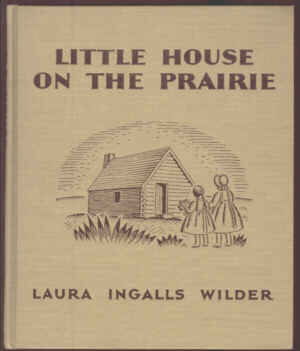Was Laura Ingalls Wilder’s beloved children’s series written as an anti-New Deal fable? The Wilder family papers suggest yes.
By Christine Woodside
Although Wilder and Lane hid their partnership, preferring to keep Wilder in the spotlight as the homegrown author and heroine, scholars of children’s literature have long known that two women, not one, produced the Little House books. But less well understood has been how exactly they reshaped Wilder’s original story, and why. Throughout the 1930s and early 1940s, as the Little House fans clamored for more, Wilder and Lane transformed the unpredictable hardships of the American frontier experience into a testament to the virtues of independence and courage. In Wilder’s original drafts, the family withstood the frontier with their jaws set. After Lane revised them, the Ingallses managed the land and made it theirs, without leaning on anybody.
A close examination of the Wilder family papers suggests that Wilder’s daughter did far more than transcribe her mother’s pioneer tales: She shaped them and turned them from recollections into American fables, changing details where necessary to suit her version of the story. And if those fables sound like a perfect expression of Libertarian ideas—maximum personal freedom and limited need for the government—that’s no accident. Lane, and to an extent her mother, were affronted by taxes, the New Deal, and what they saw as Americans’ growing reliance on Washington. Eventually, as Lane became increasingly antigovernment, she would pursue her politics more openly, writing a strident political treatise and playing an important if little-known role inspiring the movement that eventually coalesced into the Libertarian Party.
As perhaps the biggest government handout in US history, it's the opposite of the libertarian fairy tale of self-reliance. The Wilders might've been homeless refugees if not for the the government's charity.
For more on the subject, see Little House Celebrates Land Theft and Wilder the Typical Conservative.


No comments:
Post a Comment